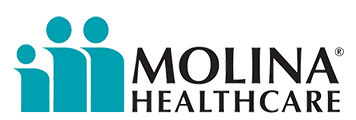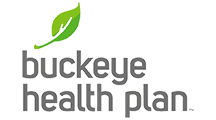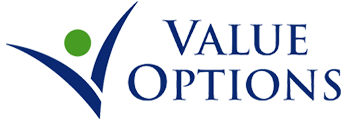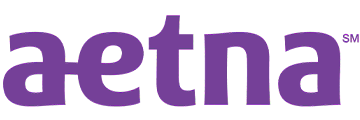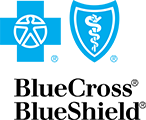Believe in Yourself
Seacrest Recovery Center
Providing substance abuse and mental health treatment, utilizing proven therapeutic methods and individualized treatment tailored to your specific needs
Opiate Addiction Treatment
Opiate Addiction Treatment
What is Opiate Addiction and How Does it Happen?
There are multiple types of addictions such as addictions to alcohol, amphetamines, gambling, sex, and even social media. Opiate addiction is merely addiction to opiate drugs. Though many people use the term “opiates” or “opioids” when describing someone who is addicted to pain pills or the heroin epidemic, they often are not fully educated about the specific types of opiates and their effects on the human body.
Many people think of heroin when they talk about opiates and opiate addiction. Heroin is the most commonly used opiate, but it is not the only type of opiate. Multiple drugs fall under the category of opiates such as:
Codeine
Morphine
Hydrocodone (also known as Vicodin or Hycodan)
Oxycodone (also known as Oxycontin or Percoset)
Hydromorphine (also known as Dilaudid)
Fetanyl
Heroin
Methadone
Buprenorphine (also known as Suboxone)
People who are addicted to pain pills often become addicted as a result of medical treatment. However, some people become addicted to pain pills through finding them in someone’s home and taking them for short-term pain or experimentation. “Pharm parties” are parties where prescription drugs are used for the same recreational purposes as alcohol. Pain pill addiction is a very expensive habit, which is why many people who become addicted to pain pills turn to heroin, which is the same high for a cheaper price. The common schema of someone who is addicted to heroin is a low-class young adult who lives on the streets, but in recent years, many working older adults who have families and honors high school and college students are becoming addicted to heroin as a result of becoming addicted to pain pills.
Opiates are depressants, which depress the activity of the central nervous system. Opiates are highly addictive because they mimic the body’s natural endorphins, which relieve pain and stimulate the pleasure and reward centers of the brain. The effects of opiates on the body are:
Produces temporary feelings of blissful pleasure
Allows temporary oblivion to problems and worries
Induces a temporary relaxed, drowsy state
Temporary pain relief
Constipation
Nausea
Paranoia
Depression of respiratory system
The first time people try opiates, they achieve a high that is comparable to an orgasm. Most likely, they continue using opiates to achieve the same high. However, they can never achieve that high again. Eventually, they build a tolerance to it, so they keep using higher amounts. Addiction is a progressive disease, so their opiate addiction eventually progresses to the point that they need to use opiates in order to avoid excruciating withdrawal symptoms.
How is Opiate Addiction Treated?
Addiction is a physiological and psychological disease. Addiction treatment consists of treating the physiological and psychological aspects of the disease. Most of the time, spirituality is used to help treat the psychological component of the disease.
The first step to treating the physiological aspect of addiction is detox. This is one of the most difficult parts of addiction recovery because the sufferers have to face the excruciating withdrawal symptoms they have desperately dodged for so long by doing anything, including crime, to be able to use drugs. It is critical for detox to take place under the supervision of medical staff. Detox typically takes place for five to seven days. The second step to treating the physiological addiction is getting the mind and body reprogrammed to functioning without the drugs. On average, it takes 30 to 90 days for the mind and body to acclimate to functioning without the drugs. The treatment center will assist the recovering individuals in this process through teaching them nutrition, fitness, and yoga.
Treating the psychological aspect of addiction is an extensive process that goes beyond the 30 to 90 days of treatment. Psychological treatment is done using a variety of therapies and activities such as
Individual therapy
Group therapy
Twelve-Step Meetings
Twelve-Step Alternatives such as sober coaching and SMART Recovery
Family Therapy
Art and music therapy
Equine therapy
Yoga and meditation
Reading Twelve-Step literature
Hypnosis
Acupressure and acupuncture
Implementing accountability through regimented schedules, work, school, and family commitments
Recovery is a lifelong process, so the recovering individuals must continue participating in programs after treatment to help them maintain their recovery such as:
Twelve-Step Meetings
Reading Twelve-Step Literature
Twelve-Step Alternatives
Intensive Outpatient Programs (IOP)
Outpatient Programs
Fitness and Nutrition
Working and/or going to school
Religious or spiritual activities (optional)
Medication-Management (used only as a last resort for chronic relapses)
Moving into a sober-living facility or a halfway house is strongly recommended because they are able to stay away from the temptations in their old environment and will be able to live among other people in recovery. Community fellowship plays a significant role in recovery because the recovering individuals will be able to work together in maintaining successful recoveries, which is why Twelve-Step meetings are the most common form of after-care.
There is Hope for Those Who Suffer from Opiate Addiction
Opiate addiction can give the illusion of hopelessness. If you or your loved one is one of the millions struggling with opiate addiction, you are not alone. If you or your loved one are still breathing, there is hope for recovery from opiate addiction. Though recovery may seem difficult at times, it is very possible and offers a joyful life of liberty.
Seacrest Recovery Center is a small, private addiction treatment center that is located in beautiful Boynton Beach, Florida. They are committed to helping their clients break free from their addiction and achieve lifelong recovery. They accept clients who have non-government health insurance and/or have the ability to pay for treatment out-of-pocket. If you or your loved one is ready to start recovery or has general questions about addiction or treatment, call us today at 1-800-411-8019
Today Is The Day
You Never Have To Feel This Way Ever Again
One simple call to our caring and compassionate staff, and you can be on your way to a lifetime of freedom and recovery

As Seen On Hulu
Seacrest Recovery Center is The Featured Drug & Alcohol Rehab on Jelly Roll's Save Me Documentary on Hulu Originals
Trusted Treatment Provider
Certified and Accredited Both Locally and Nationwide
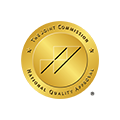
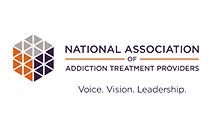
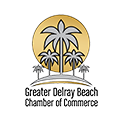
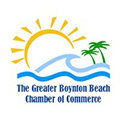

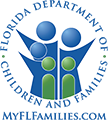
Our Clients Believe In Us
And We Believe In Them!
Here Is What They Are Saying
About Seacrest Recovery
Your First Step To Recovery
Our Locations

Columbus OH

Eatontown NJ

Willard OH


